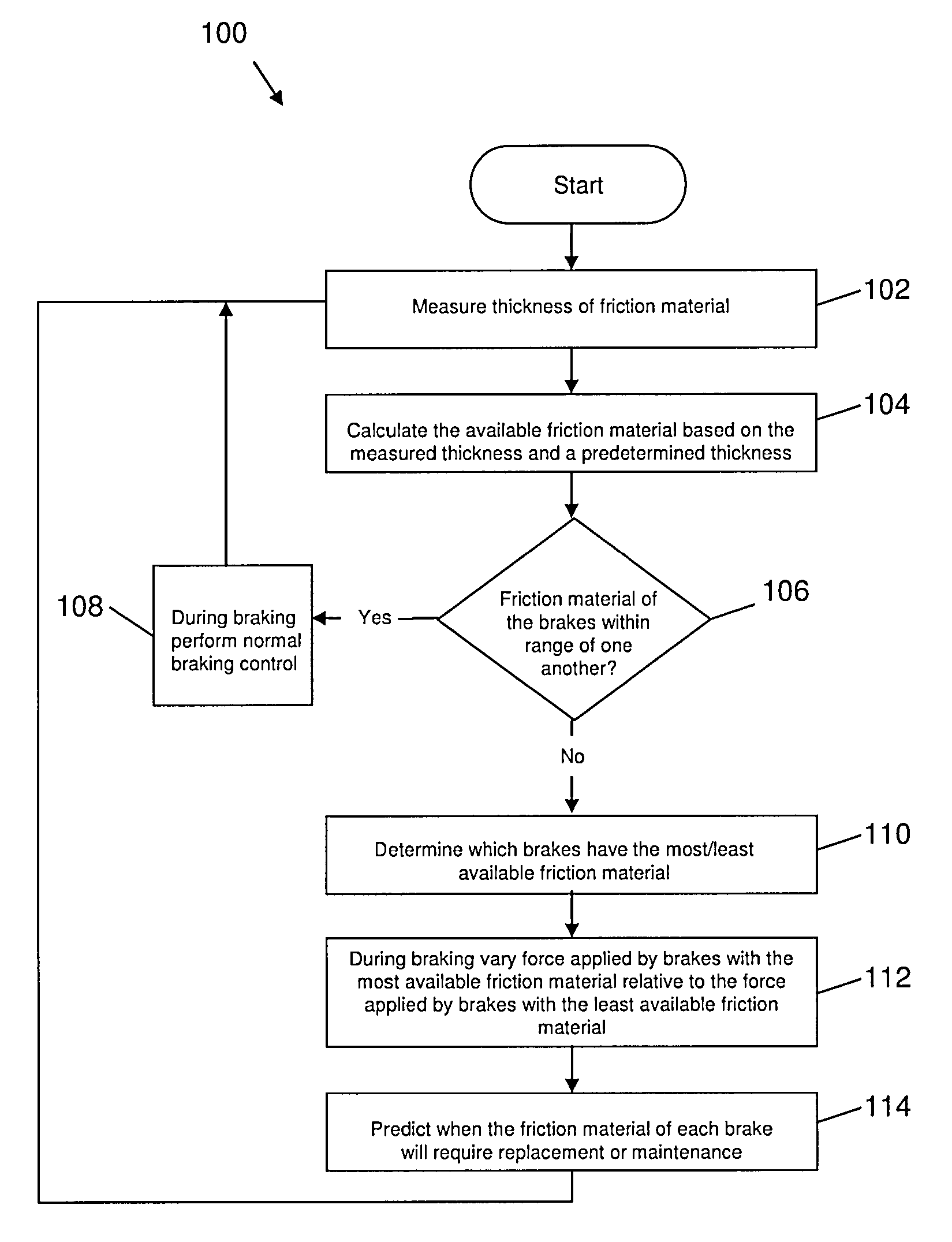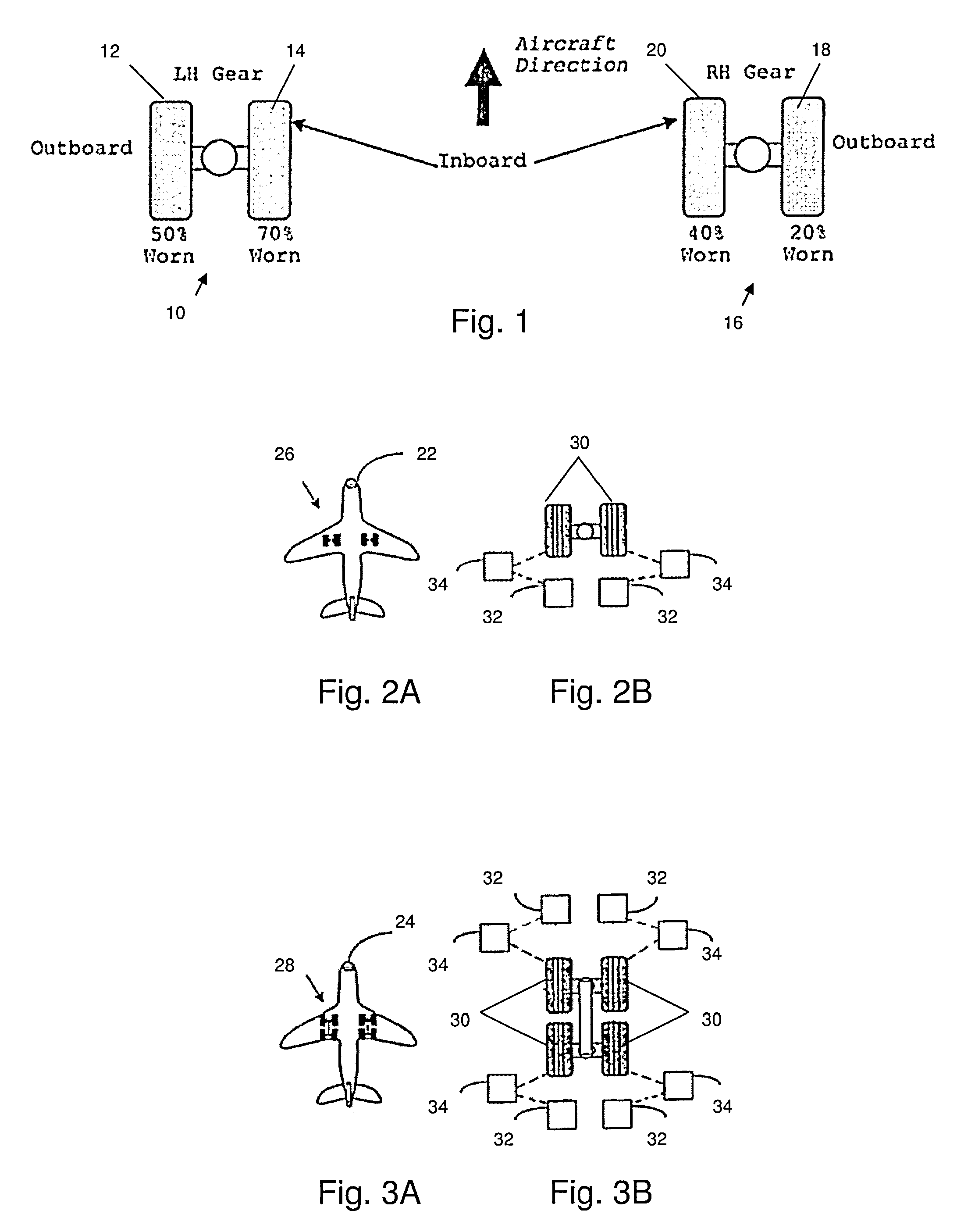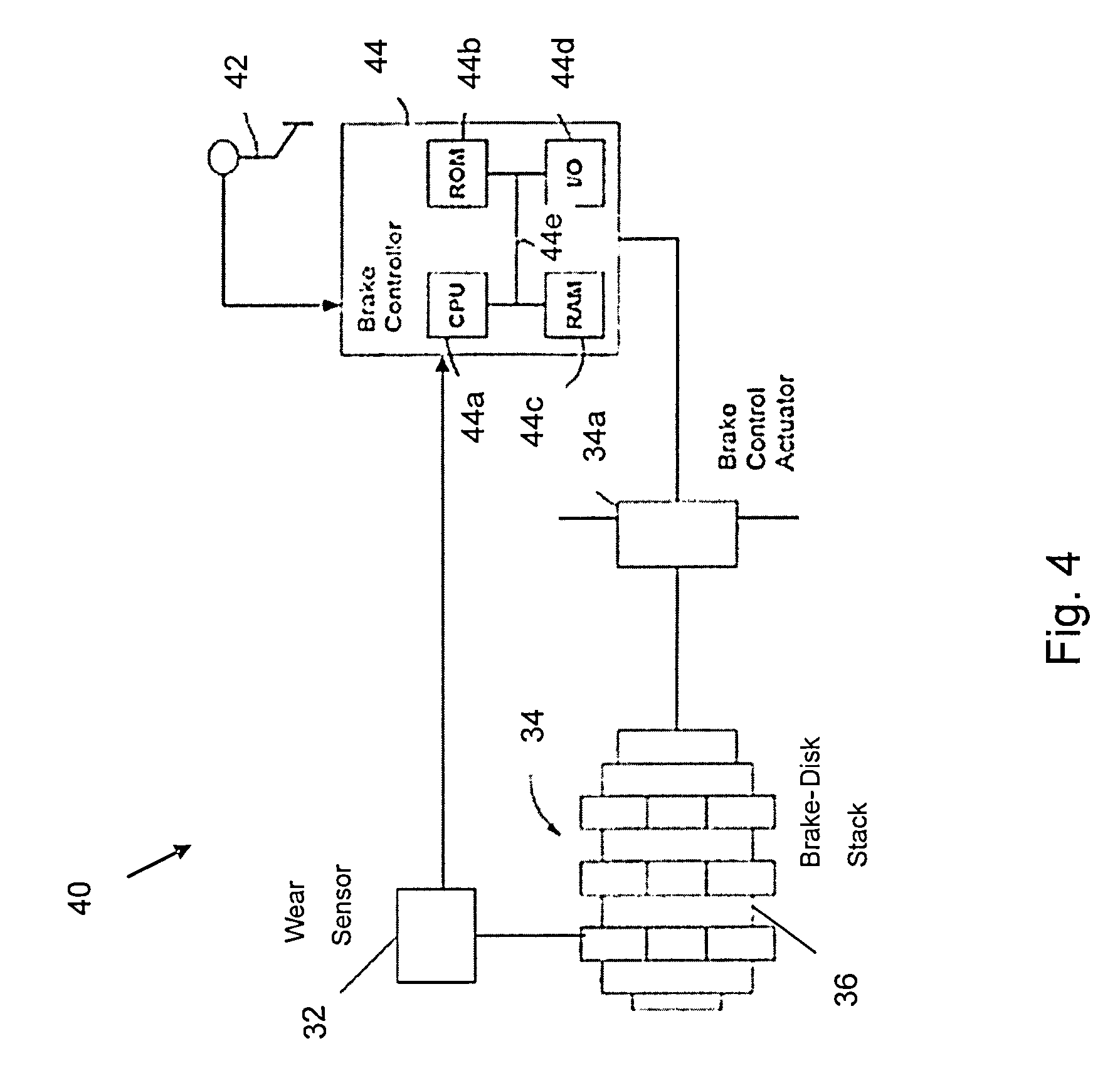Brake wear control system
a technology of wear control and brakes, applied in the direction of braking components, aircraft stabilisation, navigation instruments, etc., can solve the problems of uneven wear of brakes, increased maintenance costs, and increased maintenance costs of brakes on the same landing gear, so as to achieve more frequent inspections and maintenance, and reduce the effect of loss of revenu
- Summary
- Abstract
- Description
- Claims
- Application Information
AI Technical Summary
Benefits of technology
Problems solved by technology
Method used
Image
Examples
Embodiment Construction
[0024]The principles of the invention will now be described with reference to the drawings. Because the invention was conceived and developed for use in an aircraft braking system, it will be herein described chiefly in this context. However, the principles of the invention in their broader aspects can be adapted to other types of braking systems, such as automobile brakes, truck brakes, etc where wear is managed on the front and back of brakes.
[0025]As noted above, a problem with conventional brake systems, such as aircraft brake systems, is that the friction material for one or more brakes may wear at a different rate than that of other brakes. As used herein, friction material refers to the consumable portion of the brake that is used to convert kinetic energy into heat energy and may include a carbon material, steel, ceramic, etc.
[0026]With reference to FIG. 1, there is shown two exemplary twin landing gears 10 and 16 having different amounts of available friction material for e...
PUM
 Login to View More
Login to View More Abstract
Description
Claims
Application Information
 Login to View More
Login to View More - R&D
- Intellectual Property
- Life Sciences
- Materials
- Tech Scout
- Unparalleled Data Quality
- Higher Quality Content
- 60% Fewer Hallucinations
Browse by: Latest US Patents, China's latest patents, Technical Efficacy Thesaurus, Application Domain, Technology Topic, Popular Technical Reports.
© 2025 PatSnap. All rights reserved.Legal|Privacy policy|Modern Slavery Act Transparency Statement|Sitemap|About US| Contact US: help@patsnap.com



